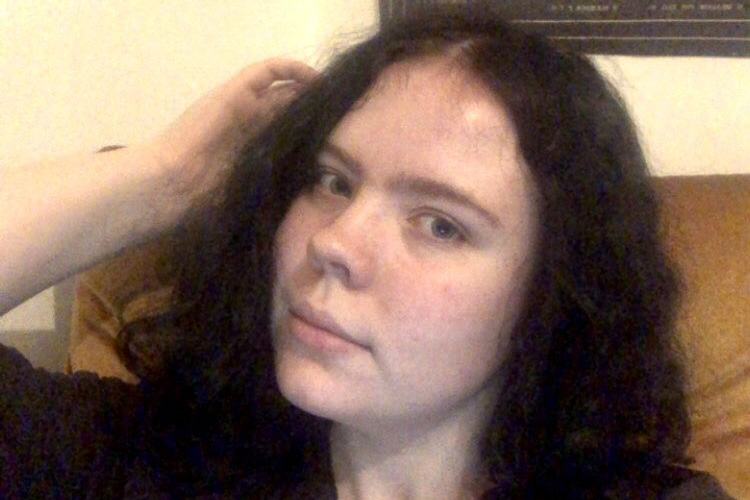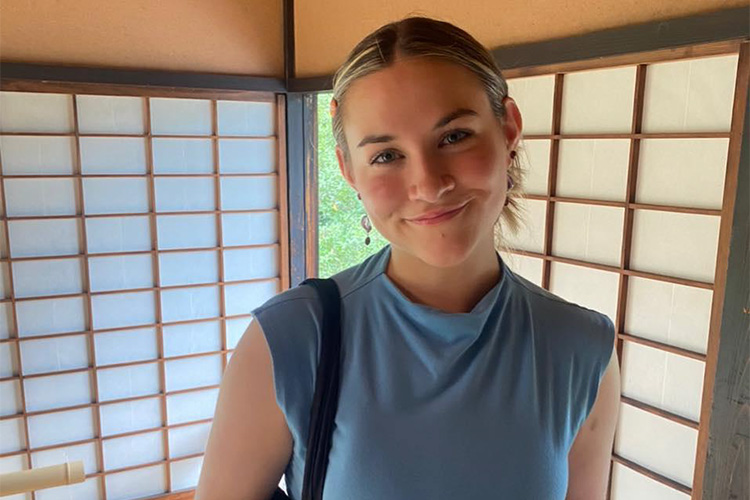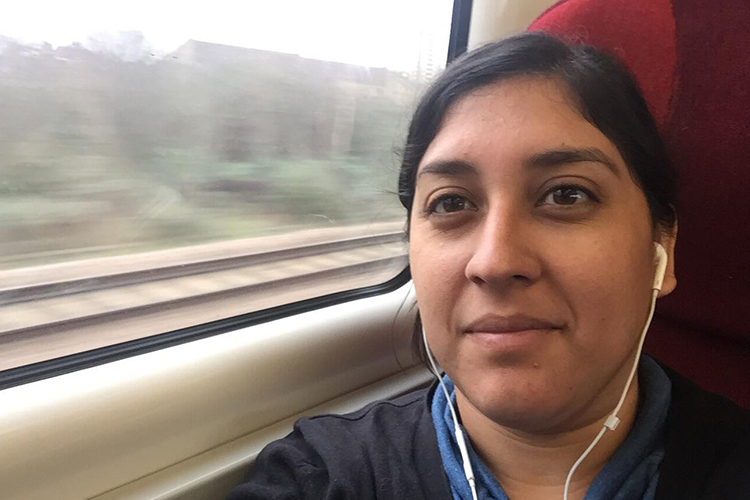Student testimonials
Sairaa Bains, graduated 2024
What first attracted you to St Andrews?
I was attracted to St Andrews by its flexible degree structure, its small-town aesthetic, talented set of alumni and reputation for world class teaching. I applied to St Andrews for an English Honours and later converted that into a Joint Degree with Film Studies. In addition to the first-class teaching both in terms of rankings and what I had heard from previous students, I found the modules to be quite versatile and suited to my areas of interest. The vast opportunities from sporting activities like horse riding to societies such as Film Society also attracted me to St Andrews.
What was the best thing about studying Film Studies at St Andrews?
I would say the best thing about studying Film Studies are the opportunities that are present for a student to truly do what they are passionate about - both within academics and outside of it. Be it joining the filmmaking society, being a curator for the Sands Film Festival, working on a film research project, or simply just choosing a module you feel zealous about. There is something for everyone and a very hardworking, passionate set of lecturers and professors who provide students with a nuanced way of thinking about the world and its association with film. Studying Film Studies at St Andrews is a joy. From being taught by lecturers who are the best in their field, to being embraced by a historic town, and literally studying in a place worthy of being its own film set.
What piece of advice would you give to students thinking of applying for Film Studies?
I would say if you are interested in becoming a screenwriter, filmmaker, actor or are just curious about how to read films and the multitude of cinematic theories and techniques – apply! Film Studies is an extremely rewarding degree, and no matter what anyone tells you, you can build a life with the skills and experiences that this degree offers. As someone who was School President, undertook a research internship within the department, served as class rep and was an ambassador for the Sands Film Festival – I would say try and do as much with you time as you can. You never know what truly ignites the spark in you. When I undertook my research internship assisting Professor Glyn Davis on his book Pop Cinema, I realized that in addition to my passion in writing, I really enjoyed the entire publication process, which made me want to explore a career in publishing. Be on the lookout for such opportunities as you never know where they might take you.
Write the essays you feel most passionate about, choose the modules that may initially seem frightening, and make the most of all that film studies has to offer. Studying Film Studies is truly a first-class experience, and almost everyone I've come across who seems to be studying/teaching it is an extremely profound, smart and passionate individual.

Mikey Reid-Cain, graduated 2024
What first attracted you to St Andrews?
The prestige of the university (and the film course especially) was obviously a factor when I was first considering applying, but I became absolutely certain when I actually visited the town for the first time; I can only describe it as love at first sight. Not only is St Andrews astonishingly beautiful, it has such a strong sense of academic community, both from the current students and the town's rich intellectual history, that I sensed even on a first visit. As someone who as always been very passionate about their studies, this was deeply attractive to me. I can honestly say that I still think St Andrews is the most beautiful place in the world, and I feel lucky to be here every single day.
What was the best thing about studying Film Studies at St Andrews?
Classroom environments are welcoming and lively, and there is so much room to develop your own research interests. The staff all have such passion and expertise, and develop the modules based around their cutting-edge research, so I always feel that I am learning something unique. My love for film has been enriched so much by studying it – the work is challenging but deeply rewarding.
What piece of advice would you give to new students?
My general advice is simply to go for it! However, make sure you visit the town or at least walk around it on Google Street View. The town is small enough that you’ll be spending a lot of time in the same area, so be sure that you can really see yourself here before you apply. There are plenty of unusual things to do, and the small size is perfect for me, but it’s definitely not for everyone.

Erica Ostlander, graduated 2024
What first attracted you to St Andrews?
When I was first applying to universities, my dream was to study film in a place that felt globally connected, both in terms of its location and the diverse perspectives it would offer. St Andrews was an ideal choice as it attracts people from all over the world, and I am always in awe of how many new ideas and concepts I can encounter every day. Additionally, as a film lover, I can confirm that many of these have indeed been a fascinating range of films!
St Andrews is also a beautiful seaside town, and I was excited about the prospect of having a peaceful view of the ocean while studying. Having graduated now, I can confirm that the view is definitely something to be missed.
What was the best thing about studying Film Studies at St Andrews?
St Andrews is a small town, and people often joke that it is like a bubble. Yet, despite the quaintness of the setting, I found that St Andrews seems to be constantly growing. You’re always meeting new people and encountering different perspectives, which ultimately is a wonderful opportunity to learn more about oneself. Studying film here seems to multiply this experience, as film opens up so many doors to learn more about the world.
However, if I had to say the best thing about studying Film Studies at St Andrews, it would be the people you get to see everyday. The academic staff are second to none and are extremely supportive of your academic goals. You always hear about the work they’re passionate about in class, making each lecture a rare opportunity to learn from leading experts in their respective fields.
Additionally, the students are enthusiastic about the subject, with discussions often extending beyond tutorials and seminars. The small class sizes also make it easier to get to know your classmates and their fascinating interests. Studying Film Studies at St Andrews is a one of a kind experience for every student, but it is most definitely a time that will be filled with warm and friendly encounters.
What piece of advice would you give to students thinking of applying for Film Studies?
If you're considering applying to study Film Studies at the University of St Andrews, I would definitely encourage you to go for it! St Andrews is a beautiful place in so many ways, and I believe it is important to take steps to make the most of it. If I were you, I would sit down and really think about how you can shape your experience to suit your own interests and aspirations.
There are plenty of opportunities to get involved with both the department and the local film scene, which is certainly vibrant! St Andrews hosts several film festivals, such as the SANDS International Film Festival of St Andrews and the St Andrews Green Film Festival, both of which offer unique insights into different facets of the film industry.
Within the department, you can also take on roles like class representative, sustainability representative, careers and employability representative, and much more. These are great ways to get involved in how Film Studies is taught at St Andrews and to help shape the student culture within the department. Additionally, if you’re interested in filmmaking, there are several student groups like the Film Society or Filmmaking Society to get involved with.
St Andrews is a welcoming place, perfect for students passionate about film, and I wish anyone the best of luck with their application!

Molly Ryan, MLitt student, graduated 2022
What attracted you to St Andrews?
I was looking for a programme that was academically rigorous, provided professional opportunities beyond the classroom, and where it felt possible to get to know the faculty and my fellow students — all of which was incredibly true in the Department of Film Studies at St Andrews. The faculty were all working on cutting-edge research topics that intersected with my own interests. Even though it is small, I was excited that the town was very international and that there seemed to be such a thriving creative community. Finally, I was thrilled for the chance to get involved in the inaugural Sands International Film Festival of St Andrews, which helped me to gain useful professional experience (and meet awesome people) alongside my studies. (The possibility of a scholarship also helped!)
How has the department helped you with your research or to develop your skills and knowledge?
I became a much stronger researcher and writer during my time at St Andrews. The module structure exposed us to a breadth and depth of topics, films, and approaches that made for an incredibly rich year and pushed my thinking in new directions. The workload was not overwhelming, but assignments for modules were often more rigorous than they first appeared and challenged us to communicate ideas precisely and concisely. There were always chances to dive deeper, watch more films, and continue conversations.
The small cohort size meant that we really got to know each other well and that each person's contributions were important. I formed lasting relationships with faculty members, who were very open and generous both in discussing film studies topics and offering advice for career paths after the MLitt. I very much enjoyed working with my advisor Philippa on the dissertation project. Her critical feedback challenged me in all the best ways. I gained confidence in my own scholarly perspective along with good project management skills from having to undertake a substantial project on a relatively short timeline.
What do you hope to do after the MLitt?
Just after finishing the MLitt, I accepted a position as Director of Cornell Cinema at Cornell University in Ithaca, New York. There, I oversee all artistic programming, business operations, fundraising, and outreach efforts for a longstanding, on-campus film exhibition program operating in a historic theatre space. I draw upon my studies at St Andrews all the time in this role! I have deeper understanding of global film cultures and industries, which is helpful for navigating evolving festival and distribution landscapes. I frequently have to write about and lead discussions of films with students and filmmakers, which I gained experience doing both in class conversations and through the Sands Film Festival. Finally, I look to the films, filmmakers, histories, and scholars I encountered at St Andrews for creative inspiration as I shape each semester's screening programme.
What piece of advice would you give to someone thinking about doing a MLitt in Film Studies?
St Andrews is a very magical place to study and the Film Studies department is truly top-notch. You'll find chances to challenge yourself and learn from inspiring scholars who are shaping the future direction of the field (and who are also supportive, cool, and kind). There are lots of opportunities beyond the classroom — definitely get involved with Sands, write for Frames, and go see movies at the DCA! Because it is a small programme and a small town, it feels like you can build real connections and have a meaningful impact. I've formed lifetime friendships from both within my program and beyond, and feel excited to be connected to the Scottish film industry, which is thriving in so many ways.

Shruti Narayanswamy, PhD student
Thesis
Women’s Experiences of Bombay Cinema, 1920s-1940s
How would you describe the project?
My thesis looks at women’s experiences of the Bombay film industry (1920s-1940s), through the facets of gendered cinemagoing, film publicity aimed at female audiences, and women’s labour.
What attracted you to St Andrews?
While I was drawn to the transnational research culture and expertise of the Film Studies, it was the funding opportunities that allowed me to pursue this research further.
How has the department helped you with your research or to develop your skills and knowledge?
I have benefitted immensely from the diverse and friendly research community in the department. The opportunity to work as a tutor has also helped me discover my passion for teaching.
What do you hope to do after the PhD?
I hope to develop a few projects, widen my publication portfolio and think about the next research idea that excites me!
What piece of advice would you give to someone thinking about doing a PhD in Film Studies?
Think beyond the thesis, and make the most of the wide range of professional and personal development opportunities available at St Andrews.

Maria Fernanda Miño, PhD student
Thesis
Ecuadorian Cinema for the 21st Century: Policy and Industry Implications (2006-2016)
How would you describe the project?
The project aims to analyse the impact of film policy in Ecuadorian Cinema, particularly after the turn of the century. It centres on the narratives, aesthetics, and production practices that emerged during this period, drawing relations between the film texts, the industry in which they came into being, and the overall political and social context.
What attracted you to St Andrews?
The interdisciplinary nature of the department and the availability of staff to provide extensive support throughout the application process.
How has the department helped you with your research or to develop your skills and knowledge?
My supervisory team has been able to push me academically while offering a safe and encouraging environment. More broadly, the department supports extracurricular activities to help develop the leadership and organisational skills of the PhD cohort, with initiatives such as conferences, workshops, retreats and study days.
What do you hope to do after the PhD?
I hope to be able to continue to research in film, while also nurturing my personal film practice.
What piece of advice would you give to someone thinking about doing a PhD in Film Studies?
Work on your research proposal and find a supervisory team that provides helpful and prompt feedback. Most importantly, develop strong ties to the community in St Andrews, even before you arrive. Doing a PhD requires self-discipline and a healthy state of mind, and engaging with the people, places and opportunities around you can enrich your overall PhD experience.

Ana Maria Sapountzi, PhD student
Thesis
Making Meaning of Laurence Olivier: Reading Queer Sensibilities in his Hollywood Canon, 1939-1960.
How would you describe the project?
My research identifies the disruptive trajectory present in British actor Laurence Olivier’s major Hollywood work from 1939-1960, to argue how his style of performance fundamentally challenged ideas of gender and sexual normalcy during Hollywood’s classic period.
What attracted you to St Andrews?
As a graduate of the Department of Film Studies’ MLitt programme in 2012, I felt confident that the department would be an excellent, supportive place to investigate my doctoral research as well as hone my professional skills.
How has the department helped you with your research or to develop your skills and knowledge?
Beyond the tremendous support and guidance on my doctoral work, the department has also offered the opportunity to work as a Teaching Assistant for its first and second-year undergraduate courses, to serve as postgraduate Representative for the department, and Co-Editor-in-Chief for Frames Cinema Journal (the Film Studies PGR-run online journal). I have also had the chance to organise the department’s annual PG conference in 2018 and lead a PGR Thesis Writing Boot Camp. Each position and activity has helped my professional development, working with, and learning from, my fellow students and staff.
What do you hope to do after the PhD?
My long-term ambition is to be a Professor in Film and Gender Studies. On completing the PhD, I will look to continue with teaching and towards a post-doctoral position, which would allow me to pursue new, emerging research projects that I’m currently developing.
What piece of advice would you give to someone thinking about doing a PhD in Film Studies?
Honour the professional and personal relationships you build. Make the most of all the opportunities that the programme, department, and the university offer and afford yourself time away from work to restore your energy and creativity.
